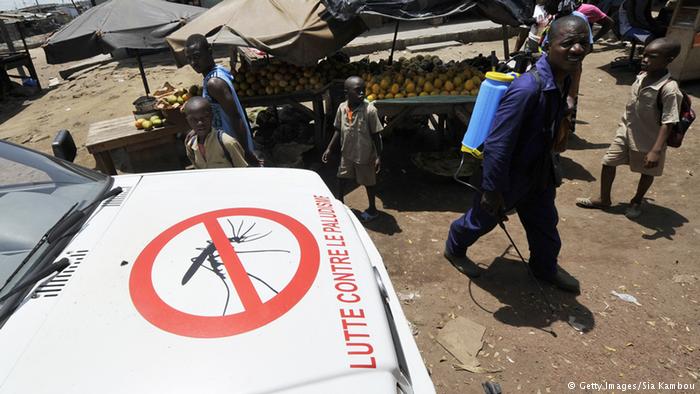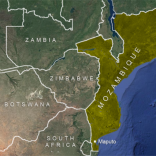Mozambique: Nampula Psychiatric Hospital sees drug-related admissions soar to 2,300 in H1
Families in Gaza refuse to have houses sprayed for mosquitoes – Mozambique

DW / Illustrative picture: Mozambique has one of the highest numbers of deaths from malaria in the world, according to the World Health Organization.
Residents accuse teams of asking for money to spray insecticide. Campaign ends this week, with a 13,000 of an expected 44,000 houses sprayed.
Many families are refusing to open the door to teams spraying houses against the malaria mosquito in Xai-Xai city, the capital of Gaza province in southern Mozambique. Henriques Cumbe, 47, is one of them. He accuses technicians of applying insecticides that do not kill mosquitoes, unless residents pay.
“There are certain collaborators who are not serious, and in other families they will only dirty the walls and dirty the clothes. Sometimes they act in bad faith, but when they negotiate with the owner of the house, they spray with the medicine that kills the mosquito. It is this situation we have in Mozambique: corruption,” he claims.
Cumbe says payments vary between 100 and 200 meticais (between 1.5 and 2.70 euros).
No complaints

The people are claiming that state operatives are becoming like private ones. Spraying teams have been denied access primarily in Xai-Xai’s Marien Ngoabi and Patrice Lumumba neighbourhoods.
As DW Africa learned in late December, hundreds of people have refused to have their houses sprayed, although more than 36,000 cases of malaria were diagnosed in Gaza province in January alone, up 57 percent compared from the same period last year.
According to Victor Chivurre, head of the Department of Public Health at the Provincial Health Directorate of Gaza, no one has so far accused the sprayers of demanding money.
“We do not have any information on this subject,” Chivurre says, added that the public should however “report any such cases, because spraying is free”.
Fears of the population
Victor Chivurre explains that there has been a change of insecticide and that people are refusing to have their homes sprayed because they believe the new product is not effective.
“We used to use another insecticide, which was selective for the ‘Anopheles’ mosquito, but today we are using a more comprehensive insecticide that kills practically all insects present in the house. I think that if people are aware of the effect of this insecticide they would be more receptive. “
Chivurre says that the sector and community leaders are trying to persuade people of the benefits of the process, especially when set beside the cost of being treated for malaria. The spraying campaign has been ongoing for two months and ends on Friday (10.03).













Leave a Reply
Be the First to Comment!
You must be logged in to post a comment.
You must be logged in to post a comment.